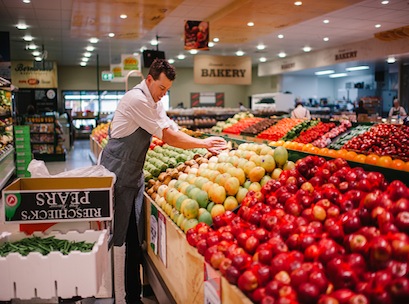 FMCG and grocery businesses are reformulating their offerings to align with changing consumer behaviour towards healthier eating, according to Deloitte’s latest Health & Wellness progress report.
FMCG and grocery businesses are reformulating their offerings to align with changing consumer behaviour towards healthier eating, according to Deloitte’s latest Health & Wellness progress report.
The report released last week found significant improvements in healthy food alternatives and responsible marketing to children.
Based on the responses of 75 international businesses, including IGA, Woolworths, Heineken, Sapporo, and Walmart, the report noted that over 70 per cent of businesses now offer low-salt or low-sugar variants of their products, and 98 per cent said they had reformulated a portion of their product portfolio.
“FMCG and grocery retailers have an increasingly important role to play in supporting healthier lives of people, and addressing evolving consumer needs in a meaningful way,” Deloitte Australia national consumer products leader Vanessa Matthijssen said.
“Australian FMCG and grocery businesses are certainly aware that health and wellness can be an important source of added value, and that transparency around it can drive further trust and loyalty.”
The report presented progress in the three resolutions agreed to in the 2011 Consumer Goods Forum – namely, providing an improved range of products and services for consumers to choose from, more clearly providing product information and responsible marketing for their products, and better communication between business and consumer – with more than 90 per cent of businesses surveyed now disclosing its policies to the public, compared to 85 per cent last year.
Seventy-six per cent of businesses also had altered their marketing strategies to include more nutritional information when marketing toward children, with television advertising an area of particular improvement, though companies are also closely monitoring social media and online messaging moving forward.
“There’s plenty more to do, of course, but health and wellness initiatives are no longer an option, they are social as well as competitive necessities, and responding in the right ways to market demands and trends will increasingly drive and define success,” Matthijssen said.
Access exclusive analysis, locked news and reports with Inside Retail Weekly. Subscribe today and get our premium print publication delivered to your door every week.





